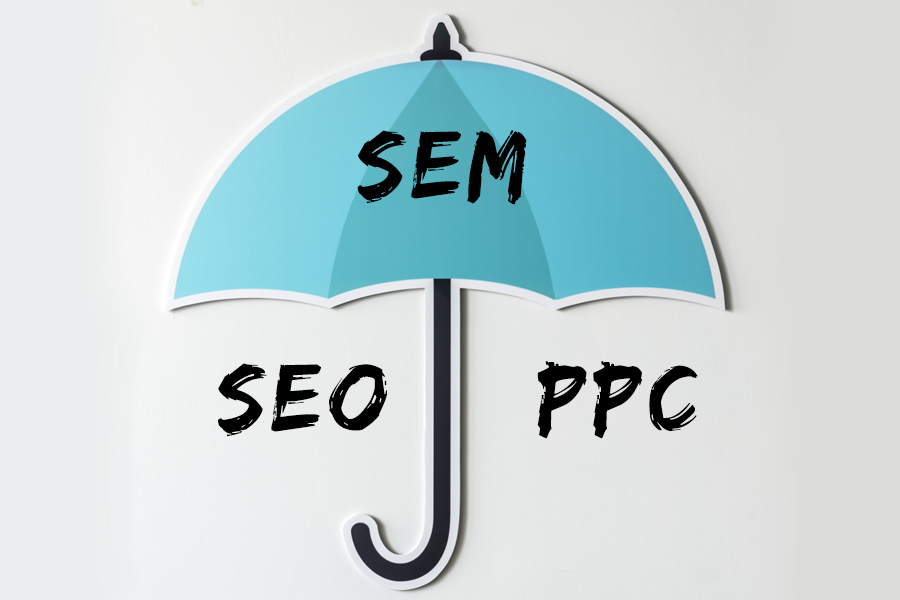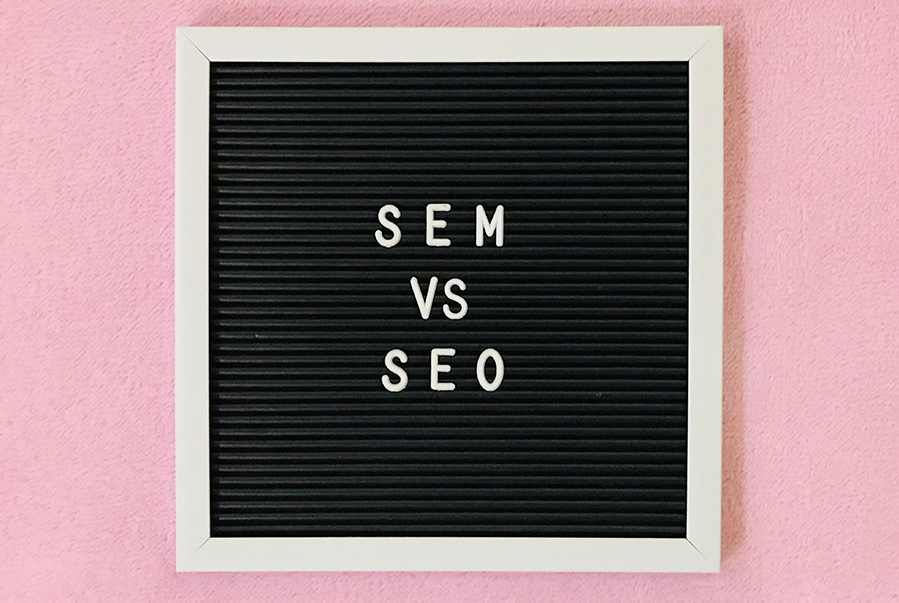The marketing world is full of acronyms – CTR, CTA, ROI, B2B, and so many more (LOL)! Two important acronyms business owners see a lot are SEO and SEM. While they may seem and sound similar, SEO and SEM are very different.
Do you know the difference between the two?
Search engine optimization and search engine marketing are often used interchangeably because business owners, and even marketing professionals, do not fully understand the difference between the two. To help you make the best marketing decisions for your business, we’re going to explain what SEO and SEM are and how they are similar.
What is SEO?
SEO, short for Search Engine Optimization, is the process of increasing the quality & quantity of traffic to your website by continuously improving your site to make it relevant. We talked more about SEO, how it works, and why your website needs it earlier this month. There are many aspects of SEO from the design of your website to producing the best content in order to rank organically on Google.
What is SEM?
SEM, or Search Engine Marketing, is exactly what it sounds like; a marketing plan to gain visibility from search engine results. The distinguishing factor of search engine marketing is it focuses marketing efforts on both organic AND paid search results. SEO is considered a component of SEM because it supports organic search ranking. Pay-per-click, or PPC, marketing is the other component of SEM and will help a website rank at the absolute top of search results.
Google shows search results based on what the user types into the search bar. Paid results, or PPC ads, are at the top of the SERPs and there are typically three websites promoted. After the advertisements, the organic results are served.

How are SEO & SEM similar?
SEO and SEM are often used interchangeably because they are similar in many ways.
- Keyword research is required to know which specific keywords to target. SEO keywords should be used with the content of your website as well as imputed on the backend of the website. SEM keyword research will help you understand which keywords to bid on for PPC marketing and help you understand where you competition is putting their advertising dollars.
- Website traffic will improve along with the quality of traffic. Both SEO and SEM will boost your exposure with search engine results by targeting keywords implementing them into your plan. Each strategy also drives traffic to specific pages of your website to get you the most amount of relevant traffic.
- With proper tracking codes in place, each approach will give you valuable insight to your audience. Whether you know your audience or not, this information will help you narrow your niche and gain reputation.
Which is best for your business?
There are several factors that can contribute to which of these marketing strategies is best for your business. One thing to think about is what your goal is and how it best serves your business. SEM is a great option if you are looking for almost instant results. PPC ads will begin running as soon as the ads are approved by the search engine or media outlet. Long-term goals and growth are better for SEO.
One thing many small business owners do not like to discuss if budget, but this is a large factor when it comes to SEM vs. SEO. Paid advertising can be expensive, especially if you are in a competitive market. If you do not have a large budget set aside for marketing, SEO will be the route for you.
Do A Website Analysis
Doing an analysis on your current visibility and marketing efforts will help you determine if your business needs either SEO or SEM. SharpFinn offers FREE market analysis to small businesses across the US. If you are ready to amp up your marketing efforts to drive additional sales or traffic, schedule a consultation today!

